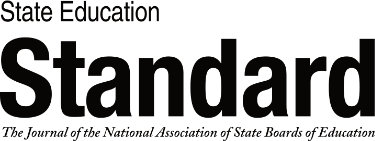While supply and demand for fully qualified special education teachers has ebbed and flowed for nearly 30 years, demand has consistently outpaced supply nationally. These shortages imperil the opportunity for students with disabilities to receive an appropriate, individualized educational program, as guaranteed by the Individuals with Disabilities Education Act (IDEA). State leaders might want to consider the key policy differences in states with lower rates of uncertified special education teachers. And what might be learned from these policies and applied to future policy proposals to address shortages?
Understanding Special Education Teacher Shortages
Also In this Issue
Ensuring Students with Disabilities Leave School Ready to Succeed
By Kristin K. Liu, Martha L. Thurlow and Sheryl S. LazarusState boards can watch policies for red flags that hold students back.
Debunking Myths about Students with Disabilities
By Karla Phillips-KrivickasState policy should confront the pervasive low expectations that the outcomes reveal.
Supporting Students with Disabilities throughout the Year
By Elizabeth Barker and Angela JohnsonThe data point up a need for services that extend beyond the school year.
Reenvisioning the Future with Universal Design for Learning
By James D. BashamBuild a system that supports each student rather than a mythical average one.
Supporting English Learners with Disabilities
By Drew S. Fagan and Luis Javier Pentón HerreraEquitable education means overcoming challenges in identification, staff training, and funding.
Understanding Special Education Teacher Shortages
By David Peyton and Kelly AcostaState policies meaningfully affect recruitment and retention.








 i
i
 i
i
 i
i